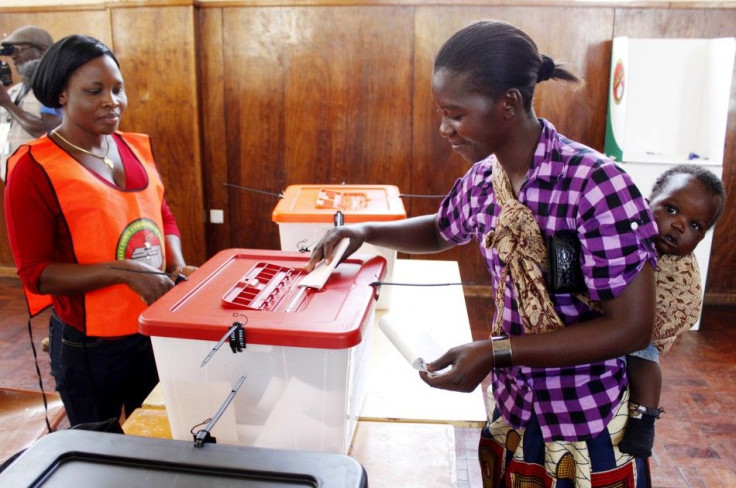China Nervously Watches Zambia's Election

Zambia held presidential elections Tuesday, but two days later only 85 of the country's 150 constituencies have reported results, sparking wide-scale unrest in the country and again bringing up allegations of fraud.
The slow vote count has sent Zambians pouring into the streets in the capital city of Lusaka, as well as in a number of mining towns.
The election pits long-time rivals President Rupiah Banda, whose party has been in power for 20 years, against Michael Sata of the Patriotic Front.
While all eyes are on Zambia, one nation's gaze is especially fixed: China's. Perhaps more than any nation other than Zambia, this election could be of significant importance on the People's Republic.
The pro-business President Banda signed an investment deal with China to create an economic partnership zone in 2007, and China is currently the third-largest importer of Zambian products (South Africa and Switzerland are first and second). Zambia is even the first and only African nation where the Bank of China deals in yuan.
But the nationalist candidate Sata has condemned Banda's China policy. While the president claims that the China deal will create new jobs and pour money into the economy, Sata's supporters, many of them poor, already feel left out of the deal. A Sata win could permanently halt China's African investment.
Some government critics have even claimed that Banda's presidential campaign was financed by Chinese businessmen, although Chinese Foreign Ministry spokesman Hong Le called the allegations groundless, according to VOA.
“Although there’s no way to prove it, there are a lot of suspicions that the MMD [Banda's party] is maybe benefiting from Chinese support just because of the sheer scale of their campaign,” Neo Simuntanyi, director of Lusaka-based think-tank Centre for Policy Dialogue, told the BBC
“The MMD has never had that kind of money before and you can see that in how well-oiled their campaign machine has been and how big their presence is everywhere around the country.”
According to the latest opinion polls, Banda still has a majority of the popular support, but the election results reported thus far have Sata leading with 43 percent of the vote, compared to the incumbent's 36 percent.
Where is Zambia?
Zambia is a nation in southeastern Africa, its southern border touching Zimbabwe and Mozambique and with Congo and Angola to the north and west, respectively. While about 65 percent of the nation's 12 million people live below the poverty line, Zambia's copper industry is thriving, making it an attractive trade partner for China.
Nearly 70 percent of Zambia's exports are copper and cobalt, about 12 percent of which is sent to China.
A former British colony known as Northern Rhodesia, Zambia gained its independence in 1964. The country was been a democratic republic since its founding, but remained a one-party system for three decades. President Kenneth David Kaunda was in power from 1964 until 1991, when riots, demonstrations and an attempted coup forced Kaunda to create a multi-party democracy.
Since 1991, there have been three more presidents of Zambia, all of them from a political party called the Movement for Multi-party Democracy.
Banda and Sata went head-to-head in the 2008 presidential elections, which Banda won although there were allegations that the vote was rigged.
In the past few years, China has begun an aggressive economic push into Africa. Along with Zambia, China has ventures in iron-producing Gabon, and has significant oil deals in Angola and Sudan, which sells about two-thirds of its petroleum to China. In fact, there are few African countries where China hasn't made at least a small investment.
© Copyright IBTimes 2024. All rights reserved.





















